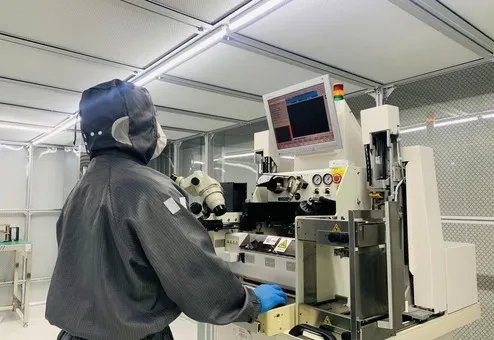Introduction of MEMS Optical Switches
MEMS (microelectromechanical systems) optical switches are a rapidly developing technology that has the potential to revolutionize optical communications. MEMS optical switches are small, fast, and energy-efficient devices that can be used to control the flow of light in optical networks. This makes them ideal for a variety of applications, including data center networking, telecommunications, and optical computing.
In recent years, there has been significant progress in the development of MEMS optical switches. Researchers have demonstrated MEMS optical switches with:
1. Switching speeds of less than 1 microsecond
2. Insertion losses of less than 1 dB
3. Crosstalk of less than -30 dB
4. Power consumption of less than 100 mW
MEMS optical switches have also been shown to be highly reliable, with a mean time between failures (MTBF) of over 100,000 hours.
MEMS optical switches are already being used in a variety of optical communications applications, including:
Data center networking: MEMS optical switches are used to connect servers and other devices within data centers. This allows data to be transmitted quickly and efficiently between devices, which is essential for high-performance computing applications.
Telecommunications: MEMS optical switches are used in telecommunications networks to route traffic between different parts of the network. This helps to ensure that data is delivered to its destination quickly and reliably.
Optical computing: MEMS optical switches are being explored for use in optical computers. Optical computers use light instead of electricity to perform calculations, which could lead to significant improvements in speed and energy efficiency.
The future of MEMS optical switches is very promising. In the next 5 years, we can expect to see:
Increased switching speeds: MEMS optical switches are already very fast, but researchers are working to develop switches that can operate at even higher speeds. This will enable even faster data transmission rates.
Reduced insertion losses: Insertion loss is a measure of how much light is lost when it passes through an optical switch. Researchers are working to develop MEMS optical switches with lower insertion losses, which will improve the overall performance of optical networks.
Improved reliability: MEMS optical switches are already very reliable, but researchers are working to make them even more reliable. This will ensure that MEMS optical switches can be used in mission-critical applications.
Reduced cost: MEMS optical switches are still relatively expensive, but the cost is coming down as the technology matures. In the next 5 years, we can expect to see MEMS optical switches become more affordable, which will make them more accessible to a wider range of applications.





 Guanglong S&T Zone, No.8 High-tech Industry Park Chaoyang Road, Guilin ,Guangxi, China
Guanglong S&T Zone, No.8 High-tech Industry Park Chaoyang Road, Guilin ,Guangxi, China  +86-133-4600-8527
+86-133-4600-8527  alan.shizz@glsun.com
alan.shizz@glsun.com